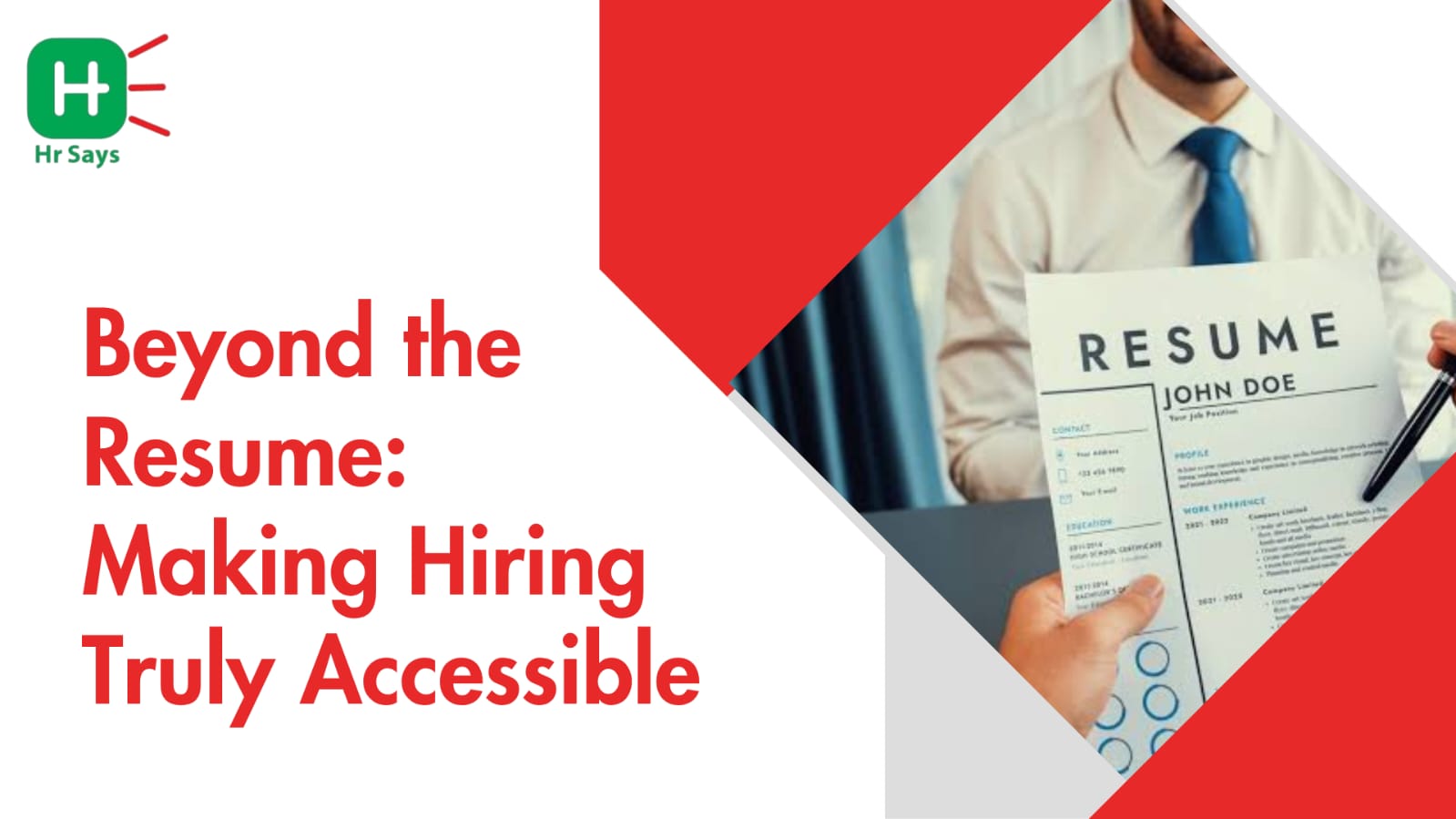Are we truly hiring for skills—or just convenience?
Inclusion often begins at the hiring desk. But if your process shuts out differently-abled candidates before they even apply, something’s broken. It’s time we rethink the basics.
The Invisible Wall in Hiring
Most job listings come with hidden barriers—complex applications, jargon-filled instructions, or interviews that demand eye contact and fast replies. These systems work for some. Not for all.
That is where the problem starts. Talent is not always what it sounds like and appears.
The Reasons to Change Way of Thinking
Hiring managers often miss out on exceptional people because the process wasn’t built to include them.
Here’s what typically goes wrong:
● Application platforms aren’t screen-reader friendly
● Timed tests disadvantage those with processing delays
● Video interviews don’t work for candidates with speech or anxiety challenges
● Job descriptions exclude by being overly physical in nature
Many are rejected without a fair chance. Not because they lack ability—but because the system assumes they must match a norm.
Accessible Tools Can Change the Game
Technology has come a long way. So should recruitment.
Tools making a difference:
● Accessible job portals that support screen readers and voice navigation
● Captioned video interviews and sign language interpreters
● Alternative assessments that evaluate logic and creativity, not speed
● Remote interviewing options for those with mobility needs
These aren’t “extras.” They’re essentials.
Inclusion Isn't a Checkbox
It’s not just about hiring someone with a disability. It’s about giving them the same chance to succeed.
That means:
● Creating job descriptions that focus on outcome, not physical presence
● Offering flexible onboarding
● Encouraging managers to shift expectations—not lower them
Companies often fear accommodations will be expensive or time-consuming. Most aren’t. And many tools are already available. What’s missing is the will to use them.
So, What’s the First Step?
Look at your hiring process like someone trying to access it with limitations. Would they give up halfway?
If yes, start here:
● Audit your job application for accessibility
● Involve diverse voices in recruitment design
● Offer accommodations upfront—don’t wait to be asked
Conclusion
Talent doesn’t need fixing. Systems do. Recruitment isn’t truly inclusive until everyone has the same shot—without needing to fight harder for it.
Accessibility is not just the right thing to do. It’s the smart thing. Let’s stop talking about it like it’s charity. Let’s just make it normal.

 Hiring differently-abled talent isn’t a trend. It’s a shift toward real inclusion. With accessible tools and the right mindset, companies can unlock hidden potential—without making it feel like charity.
Hiring differently-abled talent isn’t a trend. It’s a shift toward real inclusion. With accessible tools and the right mindset, companies can unlock hidden potential—without making it feel like charity.








.jpeg)
.jpeg)

.jpeg)





.jpeg)



.jpeg)

.jpeg)



